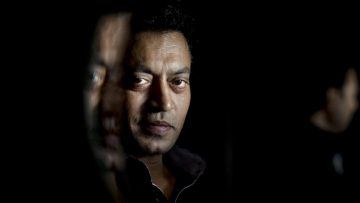Mayukh Sen in The Atlantic:
 In 1986, when the director Mira Nair was scouting for her film Salaam Bombay! at the National School of Drama in New Delhi, she fixed her gaze on a young man from Jaipur. “I noticed his focus, his intensity, his very remarkable look—his hooded eyes,” she later recalled of seeing Irrfan Khan. Though she cast him, she soon decided that he was too towering at more than six feet, that he seemed too well fed to convincingly play a malnourished child. To Khan’s dismay, Nair pared his role down to scraps. “I remember sobbing all night when Mira told me that my part was reduced to merely nothing,” the actor told the Indian magazine Open in 2015. “But it changed something within me. I was prepared for anything after that.”
In 1986, when the director Mira Nair was scouting for her film Salaam Bombay! at the National School of Drama in New Delhi, she fixed her gaze on a young man from Jaipur. “I noticed his focus, his intensity, his very remarkable look—his hooded eyes,” she later recalled of seeing Irrfan Khan. Though she cast him, she soon decided that he was too towering at more than six feet, that he seemed too well fed to convincingly play a malnourished child. To Khan’s dismay, Nair pared his role down to scraps. “I remember sobbing all night when Mira told me that my part was reduced to merely nothing,” the actor told the Indian magazine Open in 2015. “But it changed something within me. I was prepared for anything after that.”
The film would go on to be nominated for an Oscar, but Khan’s role in it as a professional letter writer was confined to just one scene. He made an impression anyway, vanishing into the character as though he really did spend his days composing letters on the streets of Mumbai. The setback didn’t blur Khan’s focus but instead revealed it. His dogged work ethic, combined with his striking command of his craft, would make him a star unlike any India had known before. Khan walked the tightrope between commercial and art-house Hindi cinema with ease, helping viewers imagine a future in which such a binary didn’t exist. Even more impressively, he accomplished this while making major inroads in English-language films, appearing in such big-ticket titles as Slumdog Millionaire (2008), Life of Pi (2012), and Jurassic World (2015). He toiled tirelessly throughout his career, thereby cementing himself in popular memory.
More here.
